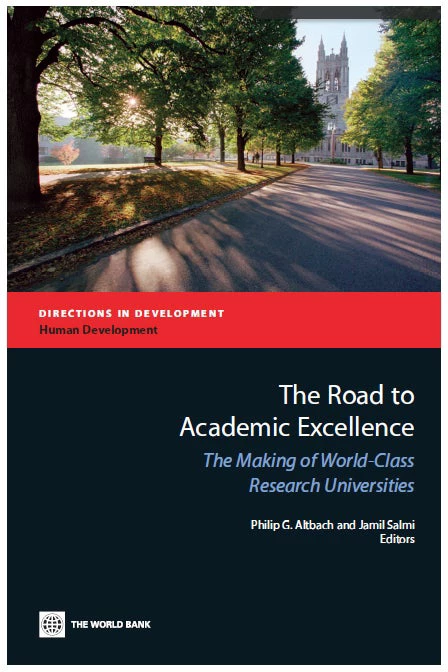When I published my first book on World Class Universities two years ago, I certainly did not anticipate the world-wide exposure it received. Now, I sometimes worry about having contributed to raising expectations about the importance of world-class universities.
When I visited Nigeria last year, I was told that the country wanted to have 20 World Class Universities by 2020. Recently, Sri Lanka announced that it would increase its higher education budget in the hope of having at least one world-class university. Today we launched The Road to Academic Excellence, a new book I edited with Professor Phil Altbach, and already, the burden of guilt regarding the possible consequences of the new book haunt me.
This new book brings together nine case-studies, telling the story of 11 institutions undergoing a complex transformational process as they strive to become world-class research universities, either by following the “upgrading” or the “starting anew” path to academic excellence.
The sample of institutions reviewed is too small to be conclusive, but the case studies suggest that establishing a new institution is a relatively faster and more effective approach to becoming a world-class research university. Still, new research universities face special challenges. They need to sufficiently innovative and represent a convincing alternative to existing institutions to attract top academics and good students. Indeed, the book identifies global talent search strategies among the most powerful accelerating factors for establishing world-class research universities.
Interestingly, new niche programs seem to have an easier time attracting top talent. The book highlights several cases of such niche programs including the Hong Kong University of Science and Technology which stands out as being the most successful in terms of attracting top talent, in part thanks to the founders’ deliberate reliance on the Diaspora to jump-start the new institution.
Another significant finding from this book is the fact that outstanding research universities do not operate in a vacuum. It is necessary to takes into consideration key forces at play at the level of the tertiary education ecosystem, within which institutions evolve. The case studies show several ways in which these tertiary education ecosystems affect the performance of individual institutions, either positively or negatively, depending on the circumstances.
My final thoughts are that even top research universities find it hard to achieve a harmonious balance between equipping their students with technical skills and rigorous methodologies while imparting the ethical values needed to pursue scientific inquiries in a socially responsible manner. Case studies in the book illustrate the concern to maintain a curriculum that blends a strong scientific training with a deep humanistic conviction. Sri Sri Ravi Shankar, the founder of a new university that is being established in the Indian state of Orissa, says “only an education that can nourish inbuilt virtues can impart true intelligence.”
As this book is launched, it is important to remember that research universities are but one component of a comprehensive tertiary education system. They certainly deserve attention and resources, but governments should be careful to keep investing also in the other institutions—community colleges, polytechnics, teaching universities, open universities, all of which are important parts of a strong tertiary education system.
Watch the lively and accomplished panel consisting of Elizabeth King, Jamil Salmi, Philip G. Altbach, Shamsh Kassim Lakha, Patti Peterson and Phil Hay discuss the book and it’s key findings.



Join the Conversation